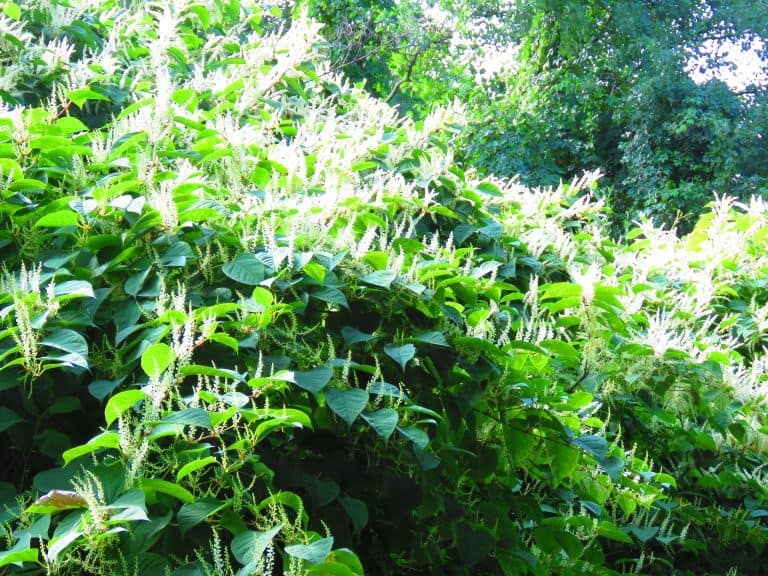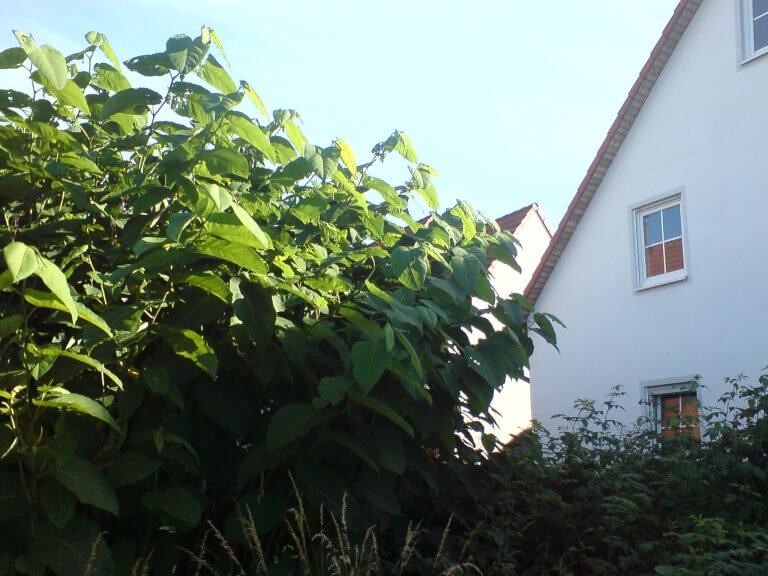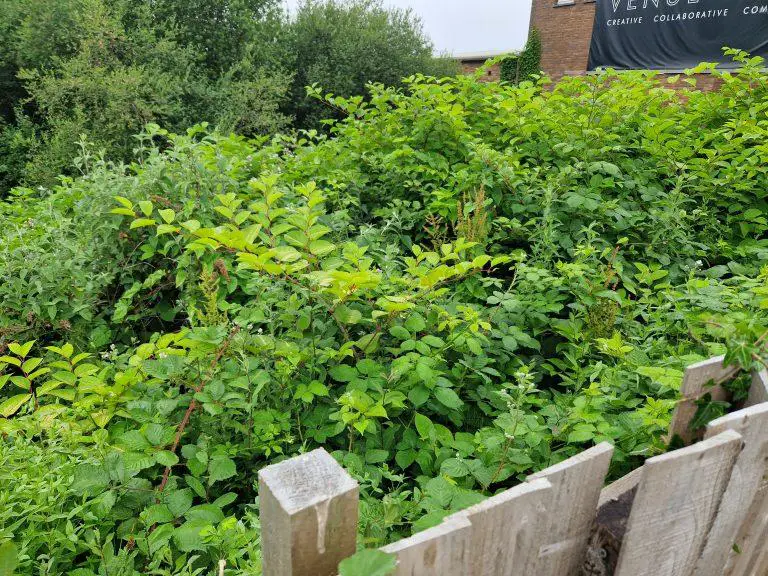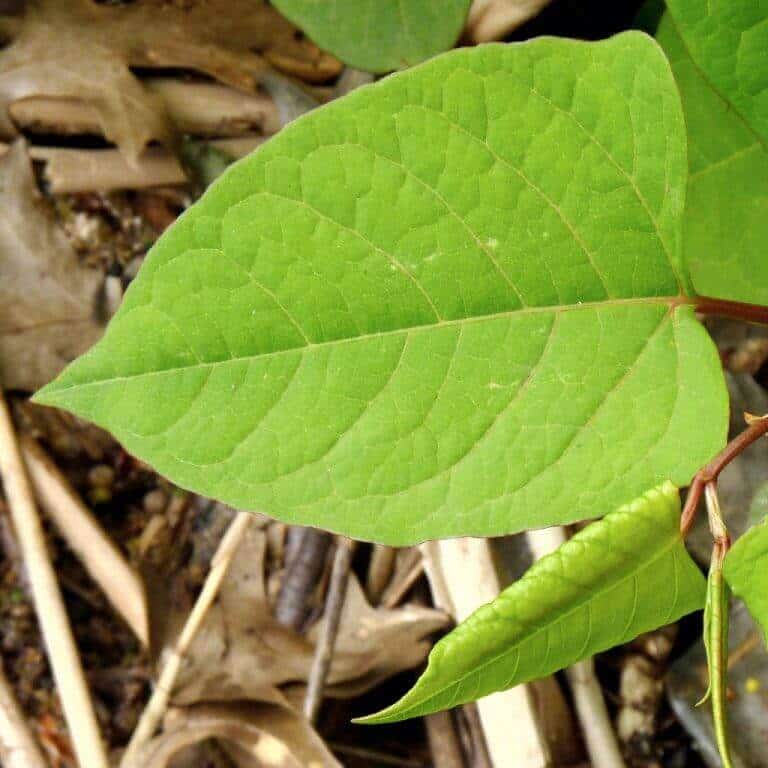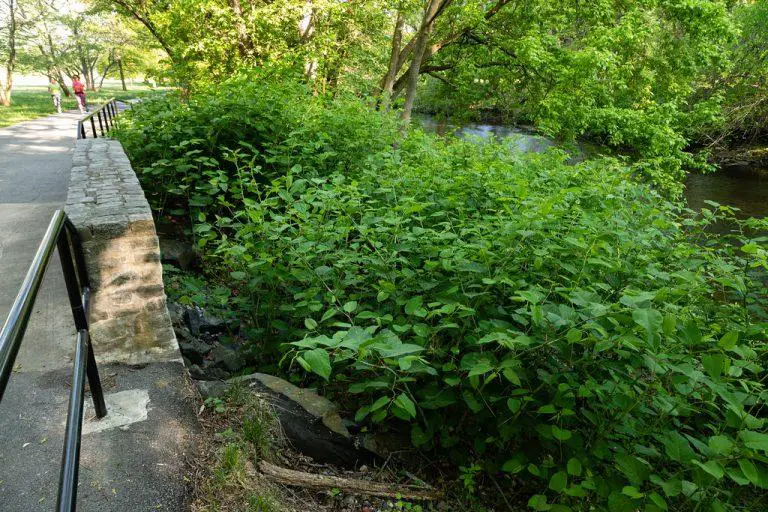The internet is full of Japanese knotweed myths and misconceptions regarding what can kill knotweed or the effect it can have on your property.
Here we try to dispel some of the obvious ones and enlighten you on what Japanese knotweed is capable of and is well-known for.
Will Japanese knotweed grow through concrete?
Japanese knotweed myths #1
This is quite a popular one and is normally matched with a host of similar questions, such as:
- ‘Can it destabilise foundations?’
- ‘It has the potential to cause structural damage?’
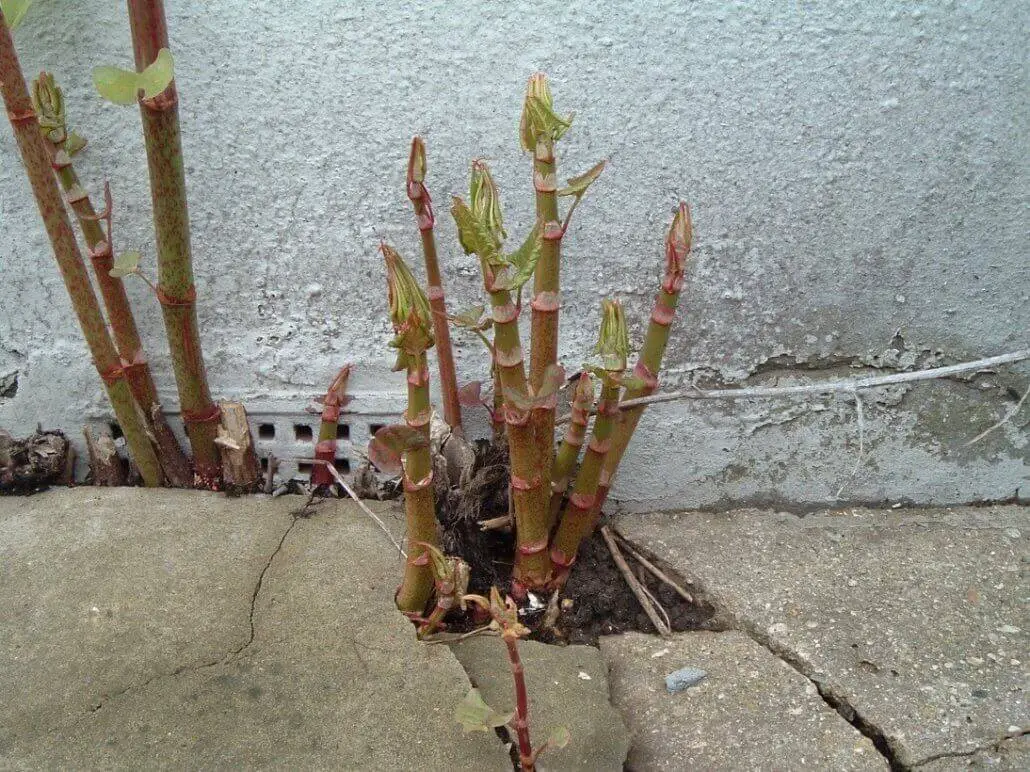
There are many horror stories littered across the internet regarding Japanese Knotweed, often about its strength and the damage it is capable of doing. Japanese Knotweed cannot break through a solid piece of concrete.
It will, however, seek out any cracks or weaknesses in any structure, and many properties will have cracks or movements within the property below ground caused by various things including subsidence and foundation settling.
Like all plants, Japanese Knotweed seeks light when underground. Its rapid growth means that a small piece could find its way through a crack or fissure, and then push it open as it grows.
To be clear and unequivocal, providing the previous groundwork/construction works have been completed correctly and to a high standard. It is almost impossible for Japanese Knotweed to grow through a slab of solid concrete, nor will it ‘destabilise solid foundations.
Furthermore, incidents, whereby the plant has a dramatic ‘negative effect’ on any ‘solid structure’, are few and far between.
Will salt kill Japanese knotweed?
Japanese knotweed myths #2
This along with many other chemicals is a misconception. Pouring salt, diesel, caustic soda, turpentine, bleach, and fairy liquid on the plant or into the ground are just some of the common fallacies which appear to have gathered momentum over the years, whilst some may appear innovative, ultimately, they will deliver no desired result.
The only substance known to kill Japanese Knotweed is a glyphosate-based herbicide. Unfortunately, the herbicides which are available to the public are also not strong enough to do the job. The herbicide used by licenced professionals is 300x stronger than anything available for purchase by the public.
Does caustic soda kill weeds?
Japanese knotweed myths #3
Caustic soda, also known as sodium hydroxide, is a highly alkaline chemical compound that is commonly used in various industrial and household applications, including drain cleaning, soap-making, and textile production.
While it can be effective at killing weeds, it is not recommended as a weed killer due to its strong caustic properties that can also harm other plants and wildlife. Caustic soda can damage soil and contaminate water sources, leading to long-term environmental consequences.
Additionally, it can pose serious health risks if not handled properly, including severe burns and respiratory problems. Therefore, it is advisable to use safer and more eco-friendly alternatives, such as vinegar or boiling water, to control and eliminate weeds.
Will I be refused a mortgage on a property if Japanese knotweed is found?
Japanese knotweed myths #4
Whilst the media has whipped up a frenzy over how this can devalue your property and leave you feeling isolated from the housing market, this could not be further from the truth.
Like most lenders they expect either party, purchaser or seller to have done their due diligence and ensure that if Japanese knotweed is or was present on the property and any land adjacent to the property, it is disclosed and appropriate measures have been taken.
This will normally involve the use of a site survey and management plan, coupled with an insurance-backed guarantee. If you have these documents in place from a PCA-accredited company, mortgage lenders will happily release the funds.
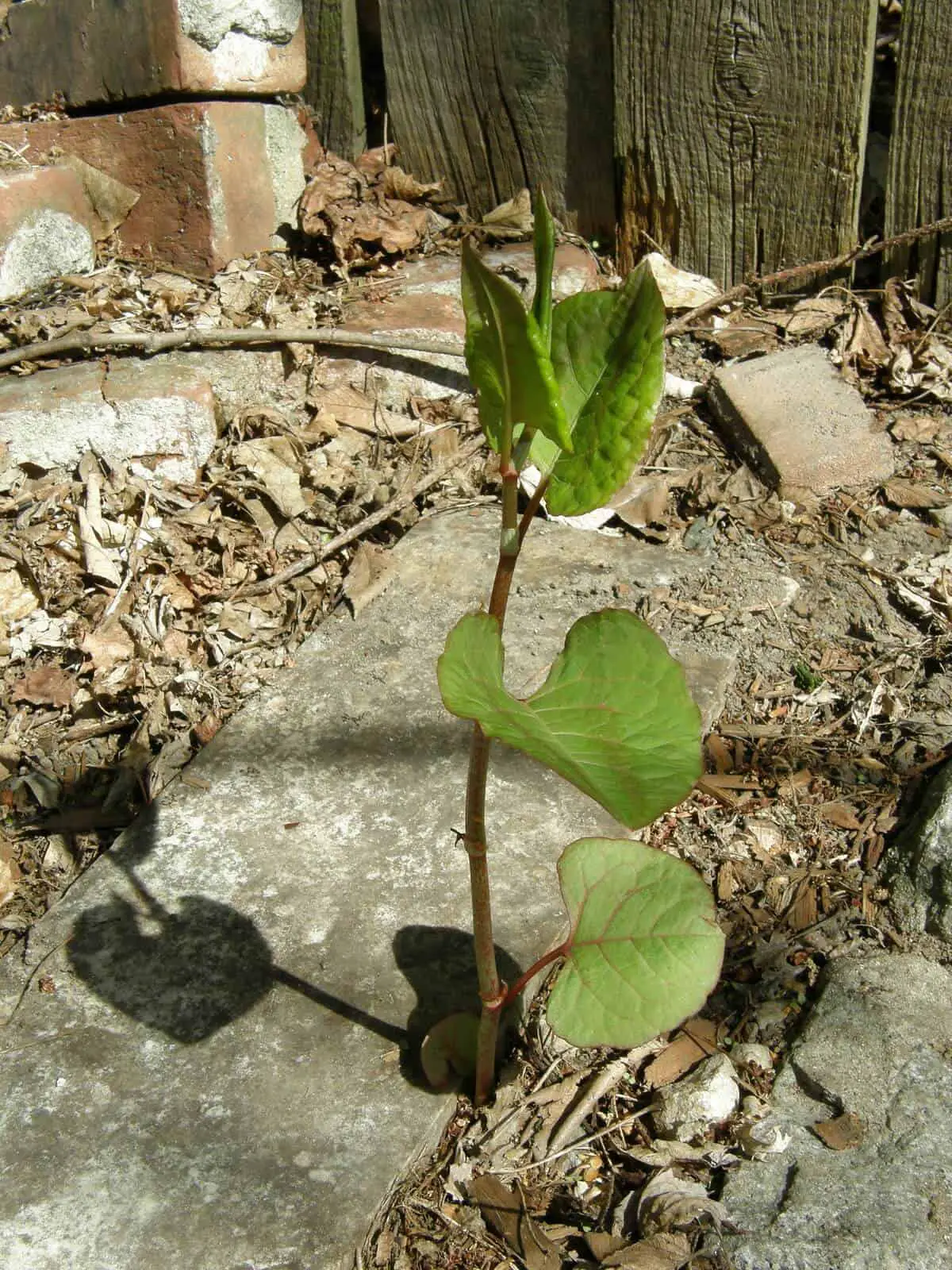
Is it illegal to have Japanese knotweed on your land?
Japanese knotweed myths #5
Another common myth about knotweed is that it is illegal to have the plant growing on your land. It is not illegal and neither is Japanese knotweed a notifiable weed, so you do not have to inform the authorities of its presence.
However, if the knotweed spreads to an adjacent property you could face legal action from your neighbour and would most likely be forced to pay for the knotweed to be treated on both sides of the fence, as well as compensate them for any reduction in the value of the property and cover their legal costs.
Similarly, if you sell a property that has been affected, even if it has been successfully treated, you are legally obliged to inform any potential purchaser and could face legal action in the future if you fail to disclose that information. But with the right treatments and guarantees in place, there is no reason why it should be a deal-breaker.
Want to know more about Japanese Knotweed myths?
Knotweed Removal aims to provide the most up-to-date information, help and advice for YOU to make informed decisions. If you are unsure or uncertain about how to proceed, please reach out to us and we will gladly come back and advise you as best we can.
Governmental advice can be found here and the UK law covering the removal of Japanese Knotweed as stated under the Wildlife and Countryside Act 1981 can be found here.
The best means to contact us is via our email – hello@knotweedremoval.tips
Do not forget we have a library of blogs covering many areas relevant to Japanese Knotweed, our free downloadable How-to Guides and Product Reviews on the latest methods being employed to eradicate or remove Japanese Knotweed.
Knotweed Removal, UK
.


